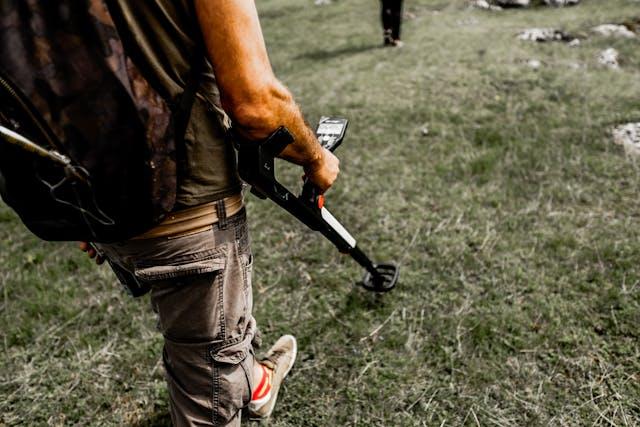How to Choose the Right Metal Detector for Your Hobby: Factors to Consider
Metal detecting is an exciting hobby that can lead to unexpected treasures and a deeper connection to history. However, with so many options on the market, choosing the right metal detector can be a bit overwhelming. Whether you’re a beginner or looking to upgrade your gear, understanding what to consider can make all the difference. Here’s a comprehensive guide to help you select the perfect metal detector for your needs.
Understand Your Purpose and Goals
Before diving into the world of metal detectors, it’s essential to clarify your purpose and goals. What do you want to find? Are you interested in coins, jewelry, or perhaps historical relics? Knowing what you hope to discover can help narrow down your options. Additionally, think about your level of commitment. Are you a casual hobbyist who plans to search local parks occasionally, or are you a serious detectorist who dreams of long weekends hunting in remote locations? Understanding your objectives will guide your decision-making process and lead you to a metal detector that suits your needs. If you want a hobbyist metal detector, click on the link.
Key Features to Look For
Once you’ve determined your type, it’s crucial to understand the key features that can enhance your metal detecting experience:
Discrimination Settings allow you to filter out unwanted metals, making your hunts more efficient. Learning to use these settings effectively can save you time and frustration.
Sensitivity and Depth Detection are essential for finding items buried deeper in the ground. Higher sensitivity can lead to better finds, but it’s important to balance this with the ground's mineralization, as overly sensitive detectors may pick up unwanted signals.
Weight and Ergonomics are often overlooked but are vital for long-term comfort. A lightweight, well-balanced detector with adjustable features will make your hunts more enjoyable.
Display and Controls vary significantly between models. Look for clear displays (like LCD or LED) that provide important information at a glance. User-friendly controls are also key, especially for beginners who may be overwhelmed by complex settings.
Budget Considerations
Setting a budget is an important step in choosing the right metal detector. Prices can range widely, so understanding what you can afford is crucial. Consider your needs and goals; a higher initial investment might be worthwhile if you’re serious about the hobby. Additionally, keep in mind any additional costs that may arise, such as accessories or maintenance, as these can add to your overall expenditure.
Research and Reviews
In today’s digital age, researching and reading reviews is easier than ever. Take advantage of online forums and websites to gather insights from other metal detector enthusiasts. Look for testimonials that compare different models and brands, helping you make a more informed decision. Engaging with local metal detecting clubs can also provide valuable recommendations from seasoned detectorists who have firsthand experience.
What You Need to Know About Metal Detectors and Depth
There are a lot of misconceptions about metal detectors. You can see people using them in movies and believe that they have the capabilities to find almost anything. However, they do have their limitations and not every model is going to be the same. Some are more advanced than others.
In particular, one element you want to pay attention to is the depth and how far down a metal detector can operate. This allows you to understand what to expect on your discoveries. Let’s take a look at what you need to know.
The Technology is Important
The more advanced the metal detector you have, the more likely it is to search at deeper levels. Indeed, it will have better technology that will allow you to explore the soil further. This is something to consider when you’re buying a model. If you’re a beginner, you might not be worried about this. But, if you have bigger plans for your hobby, this is an element to think about.
It Depends on the Soil
You’re going to be searching in different locations and you must consider the soil itself. For example, sandy beaches and sandy soil allow for better detection because there are fewer things to interfere with the frequencies. But, if you have soil that has a lot of minerals, this can make it more difficult to find items.
The Size Can Have an Impact
You also have to consider the size of the item that you’re going to discover. For example, it’ll be easier to spot a larger item that’s further down in the soil compared to something small, like a coin. Larger items have a bigger area that can help with detection when it’s paired with advanced technology. So, you can expect to find smaller items at the surface, but this might not be possible if they’re deeper.
Conclusion
Choosing the right metal detector can significantly enhance your hobby, making each hunt more rewarding. By understanding your purpose, researching different types, and considering key features, you can find a detector that fits your needs perfectly. Don’t rush the decision—take your time to explore all options, and you’ll be well on your way to uncovering hidden treasures!

